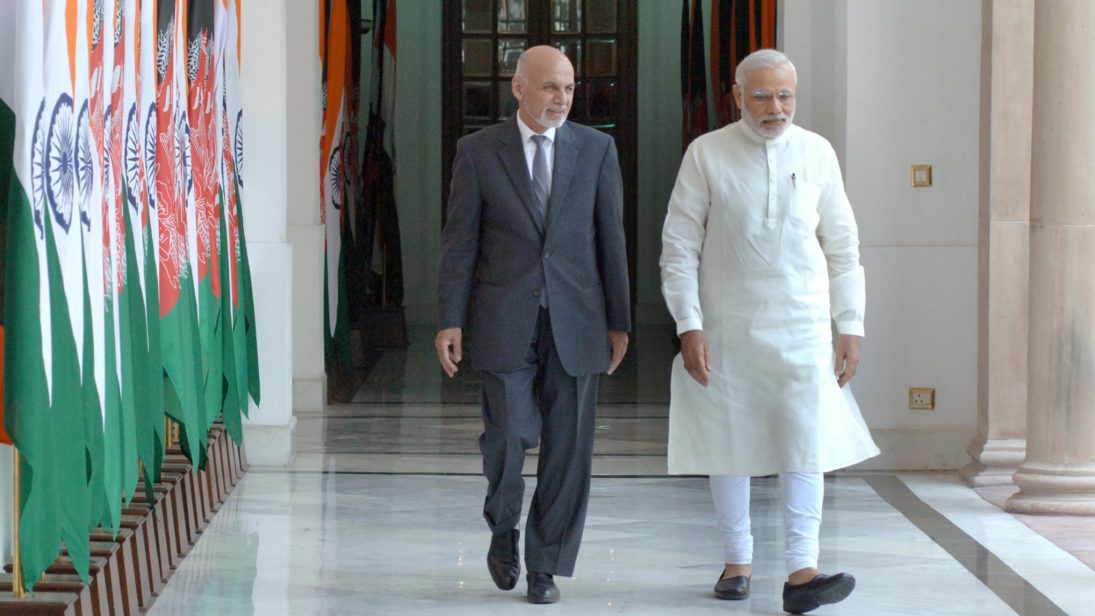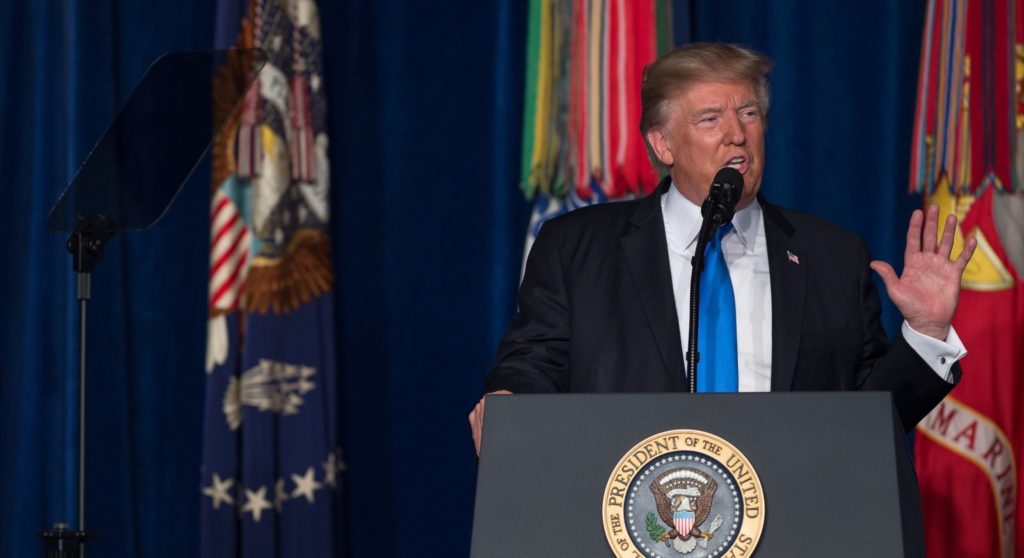
A resolution to the Afghan conflict is not materializing the way the Trump administration had expected when the United States announced its Afghanistan-centric South Asia strategy in August 2017. Washington appears desperate to find a workable solution to pull out of Afghanistan, possibly before the 2020 U.S. presidential elections. But if that is the case, time is running out to resolve the longest American war in a foreign country. And its strategic partner India may be of little help to the United States in this effort.
India’s Carefully Calibrated Afghanistan Policy
In his speech announcing the South Asia strategy last year, President Trump acknowledged India’s “important contributions to stability in Afghanistan” and called on it to facilitate the United States in the “area of economic assistance and development” in war-torn Afghanistan. New Delhi promised support to the United States in this regard and expressed its willingness to provide further development-related assistance to Afghanistan, having already given over $3 billion since 2001.
However, if the United States is expecting India to play a significant role in the Afghan peace process, as some have suggested, that is unlikely to happen. With U.S.-Pakistani relations at a new low and Russia and China making inroads into Afghanistan, the United States is looking for new partners in the region to share the Afghan burden. With India and the United States being strategic partners and working closely together in the Indo-Pacific, it is possible that Washington may expect India to do more than just provide development assistance in Afghanistan—it may seek more political and security engagement. However, India will likely not be in a position to provide that support due to its lack of access to the Taliban, its non-interventionist Afghanistan policy, and its concerns about possible conflict with Pakistan.
India has little or no direct role to play in stabilizing Afghanistan’s political situation—it is unlikely to get involved with any direct negotiations with the Taliban as it believes in the “Afghan-led, Afghan-owned, and Afghan-controlled” national peace and reconciliation process. In fact, Washington’s acceptance of the Taliban’s demand to hold direct talks with the United States and not Afghanistan may raise doubts in New Delhi about the feasibility of the U.S.-led reconciliation process. The reduced importance of the elected government in Kabul is a threat to India’s long-term Afghanistan strategy. New Delhi opposed the Taliban rule in Afghanistan between 1996-2001 and shared no diplomatic relations with the insurgent group-led government in Kabul. Even today, New Delhi does not hold official contact with the Taliban unlike other countries such as China, Russia, or Pakistan. Thus, the United States should be aware of India’s limitations in influencing a desired outcome in Afghanistan.
Moreover, India is aware of various political and security challenges involved in intervening either militarily or diplomatically in Afghanistan. Experiences of the Indian Peacekeeping Forces in Sri Lanka during the late 1980s still haunt decisionmakers in New Delhi. The repetition of that experience will be vehemently avoided, considering the added complexities of the Afghanistan case. In addition, there will be regional implications of Indian boots on the ground, due to Pakistan’s sensitivities about Indian presence in Afghanistan, that New Delhi would like to avoid. And though India is open to a limited security role in Afghanistan, such as supplying refurbished helicopters or troop carriers and training Afghan security forces, the United States should not expect any more security assistance from India while it is in the process of withdrawal from Afghanistan. India’s Afghanistan policy will likely be limited to cooperation with Kabul on matters related to nation-building and reconstruction, and development activities such as building dams, hospitals, and schools.

Future Indian Presence
For India, a democratically-elected and stable government in Kabul is important for its long-term interests in Afghanistan. The United States may expedite reconciliation efforts with the Taliban to create a secure environment to hold the 2019 presidential election in Afghanistan. In addition, a successful resolution to the Afghan conflict will be a huge foreign policy achievement for the Trump government before the 2020 U.S. presidential election. However, any hasty withdrawal and a compromised deal with the Taliban may further weaken Afghanistan’s democratic institutions and create a permanent security vacuum that terror outfits such as Al-Qaeda or Islamic State-Khorasan(IS-K) could exploit in the future.
New Delhi will likely oppose the return of any fundamentalist regime in Afghanistan as it may pose a serious threat to India’s internal security, especially in Jammu and Kashmir. Along with its domestic security implications, stability in Afghanistan is also essential for India’s ambitions of accessing energy-rich countries in Central Asia to fuel its growing economy. Furthermore, the India-Afghanistan-Iran Chabahar port agreement provides India an opening to markets in the wider Eurasian region. Other multilateral initiatives such as Turkmenistan-Afghanistan-Pakistan-India (TAPI) gas pipeline passes through Afghanistan. Therefore, a stable Afghanistan is crucial to fulfilling India’s energy and economic interests in the region.
India believes that any compromised or hasty U.S. withdrawal would be imprudent given present circumstances in Afghanistan and can have long-term negative consequences for countries in the region, including India. Therefore, it believes that the successful completion of a U.S.-led peace process with the Taliban is key to the long-term security and stability in the region and outside. Meanwhile, India will continue to provide development and economic assistance to Afghanistan, though the deteriorating security situation and apprehensions around the peace process with the Taliban may limit this Indian engagement. However, New Delhi is likely to continue to follow its non-interventionist policy in Afghanistan despite external pressures and the anticipated foreign troop withdrawal in Afghanistan in the coming years.
***
Image 1: Narendra Modi via Flickr
Image 2: U.S. Joint Chiefs of Staff website


